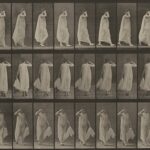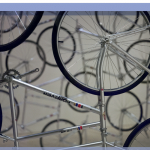Scholars John Gibson, Magdalena Ostas, and Hannah Kim discuss how art creates meaning, and how we play a role in that meaning-making. Continue reading

February 3, 2023
by Aesthetics for Birds
4 Comments


February 3, 2023
by Aesthetics for Birds
4 Comments
Scholars John Gibson, Magdalena Ostas, and Hannah Kim discuss how art creates meaning, and how we play a role in that meaning-making. Continue reading

September 8, 2022
by Aesthetics for Birds
1 Comment
Bad fans think morally condemnable characters are good and admirable. Are they wrong? Continue reading

February 11, 2022
by Aesthetics for Birds
0 comments
In making art, we make ourselves into something beyond what our original authors may have intended. Continue reading

June 4, 2020
by Alex King
0 comments
Hermeneutics is the theory and study of interpretation. Continue reading

July 10, 2019
by Aesthetics for Birds
0 comments
What follows is a guest post by Jennifer A. McMahon. Have you ever found yourself patiently listening to a range of interpretations of an artwork, wondering whether there was some objective way to negotiate the plethora of sometimes idiosyncratic and whimsical responses? Regarding this question, it is interesting to compare the typical objective of a community-based-book-club to the way gallery visitors talk about the art they see. A reader seeks to make sense of a novel in terms relative to their own life experiences. If a reader finds by referencing expert authority that their experience is far removed from what the author had in mind, the value they place on the work might be diminished rather than prompt them to any new experience of it (unless they were reading it as part of a course on which they were to be assessed). With visual art, the situation until recently was … Continue reading
March 13, 2017
by Aesthetics for Birds
0 comments
Another entry in philosophy-meets-the-artworld: Famous art critic Jerry Saltz weighs in on Vulture about Robert Longo’s All You Zombies: Truth Before God, which was recently installed at the Whitney. Saltz writes of ‘badness’ as a “metaphysical constant”: Can older bad art be made good by changing political times? The short answer, I think, is “No.” Really bad art may be a metaphysical constant, and in the case of rediscovered, long overlooked masterpieces I tend to believe the work was always good and we just weren’t capable of seeing it yet. But says that, really, it might not be that important: But when thinking about how times change works of art, we probably need to get away from using words like good and bad. Let’s focus instead on values that make art useful: surprise, energy, redefinitions of skill, a willingness to fail flamboyantly, originality in pursuit of different ideas of beauty, ugliness, … Continue reading